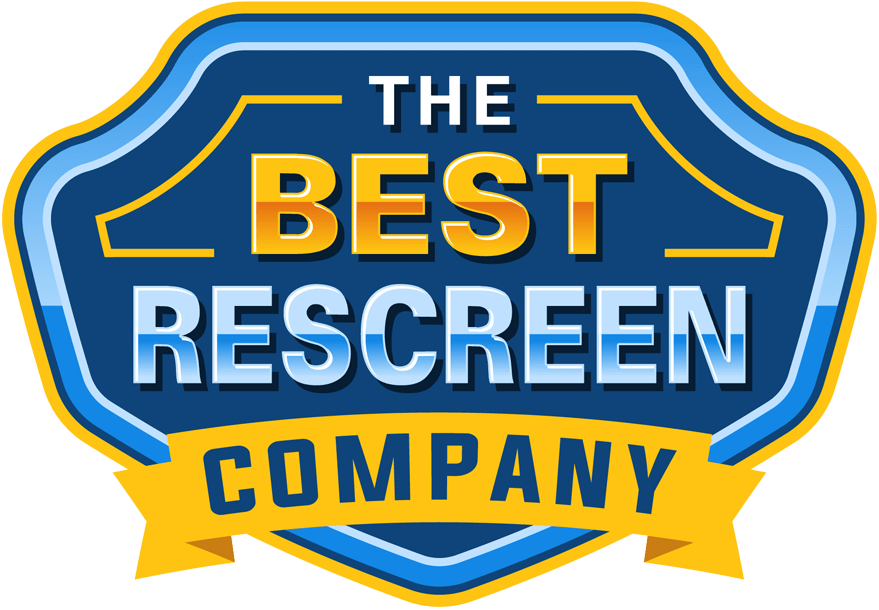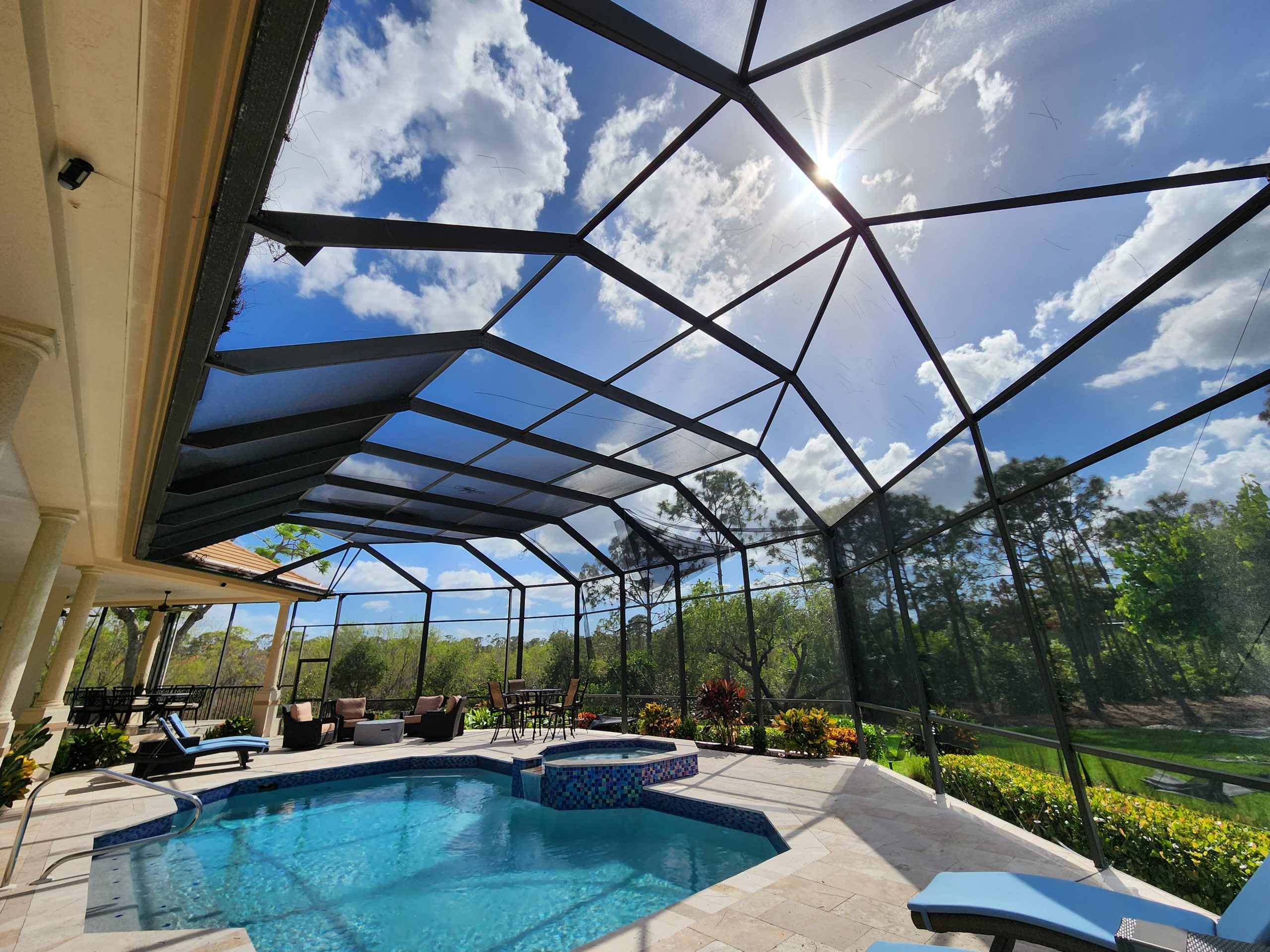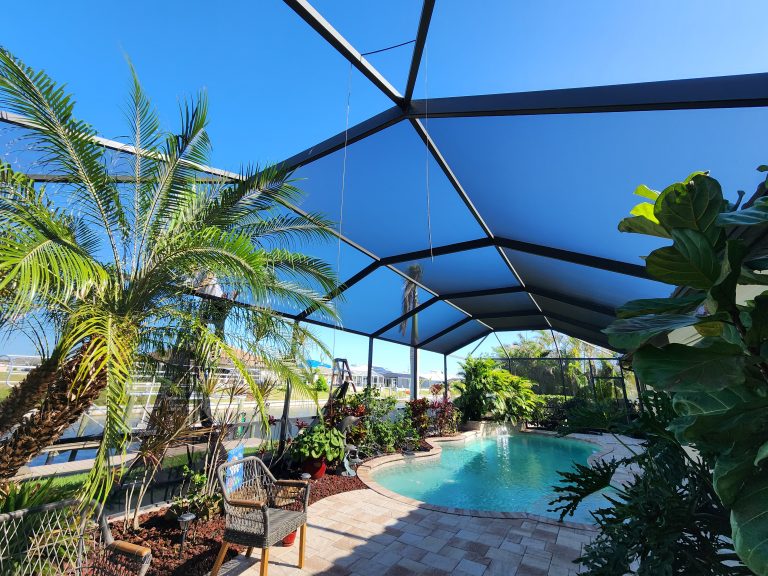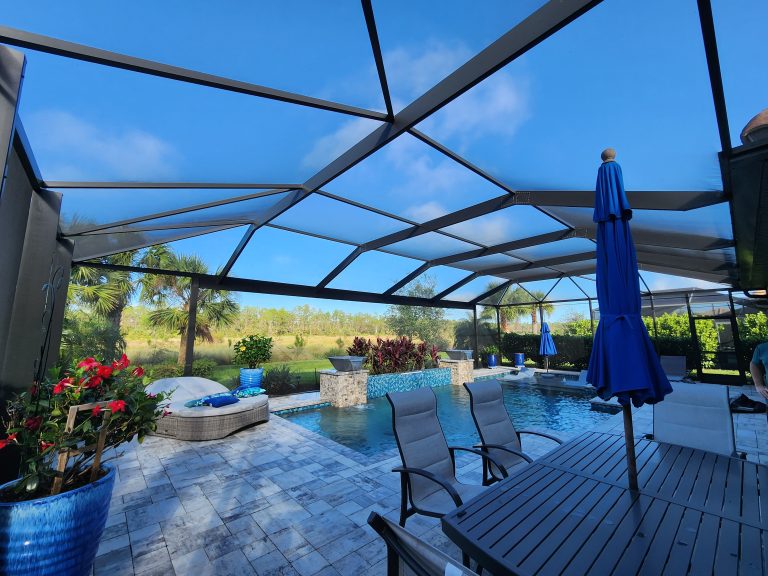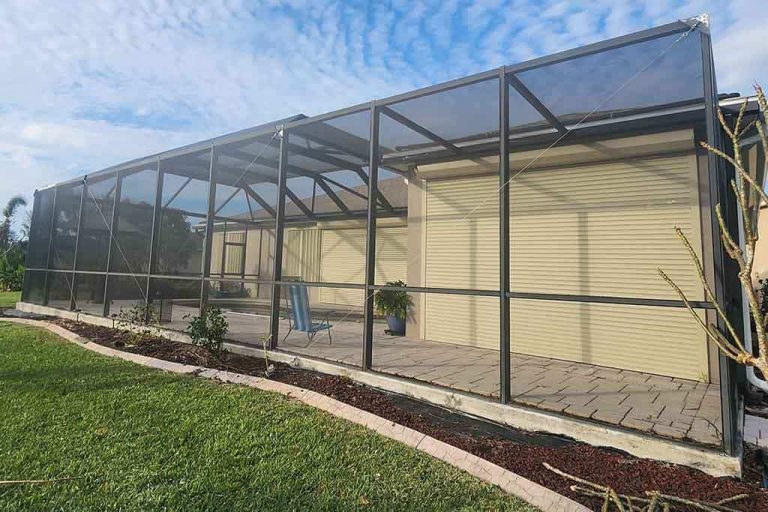Choosing the right screen type for your lanai is crucial in ensuring that your outdoor space meets your specific needs, whether it’s keeping insects out, withstanding Florida’s intense sun, or providing durability against wear and tear. At Best Rescreen Company, located at 5660 Strand Ct Unit A244, Naples, FL 34110, we offer a range of screen options, each with its unique benefits and drawbacks. Here’s a detailed look at the pros and cons of different screen types to help you make an informed decision.
1. Standard Fiberglass Screens
Pros:
- Cost-Effective: Fiberglass screens are one of the most affordable options available, making them a popular choice for homeowners on a budget.
- Easy to Install: These screens are flexible and lightweight, making installation relatively simple.
- Visibility: Fiberglass screens offer good visibility, allowing you to enjoy your outdoor views without obstruction.
Cons:
- Durability: While fiberglass screens are resistant to rust and corrosion, they are prone to tearing and may need frequent replacement in high-traffic areas.
- Limited Strength: Fiberglass is not as strong as other materials, which can be a downside in areas with pets or active children.
2. Super-Strength Polyester Screens
Pros:
- High Durability: Super-strength polyester screens are designed to withstand significant wear and tear, making them ideal for homes with pets and children.
- Resistant to UV Damage: These screens are less likely to degrade under the harsh Florida sun, providing longer-lasting protection.
- Tear-Resistant: The robust material is highly resistant to tears, reducing the need for frequent repairs.
Cons:
- Higher Cost: The durability of super-strength polyester screens comes with a higher price tag compared to standard options.
- Less Flexibility: While strong, these screens are less flexible, which may make installation more challenging.
3. Pet-Resistant Screens
Pros:
- Enhanced Strength: Pet-resistant screens are specifically designed to withstand scratches and pressure from pets, making them an excellent choice for pet owners.
- Longer Lifespan: These screens are made from a thicker, more durable material, providing a longer lifespan even in high-use areas.
- Safety: Pet-resistant screens can help prevent pets from escaping your lanai or causing accidental damage.
Cons:
- Cost: Pet-resistant screens are more expensive than standard screens due to their specialized design and materials.
- Visibility: The thicker material can slightly reduce visibility compared to standard fiberglass screens.
4. Solar Screens
Pros:
- Sun Protection: Solar screens are designed to block a significant amount of the sun’s heat and UV rays, making your lanai more comfortable during the hot Florida summers.
- Energy Efficiency: By reducing the amount of heat that enters your home, solar screens can help lower your cooling costs.
- Glare Reduction: Solar screens are effective at reducing glare, making them ideal for lanais where you want to enjoy the view without the blinding sunlight.
Cons:
- Visibility: While solar screens are great for sun protection, they can also slightly darken your lanai, reducing the brightness of your outdoor space.
- Higher Cost: Solar screens are generally more expensive than standard fiberglass or aluminum options.
5. Aluminum Screens
Pros:
- Strength and Durability: Aluminum screens are strong and resistant to corrosion, making them suitable for coastal areas like Naples, FL.
- Fire Resistant: Unlike fiberglass, aluminum screens are non-combustible, offering added safety.
- Pest Protection: Aluminum screens provide excellent protection against insects and are less likely to sag over time.
Cons:
- Susceptible to Dents: While durable, aluminum screens can dent more easily than other materials, which may affect their appearance.
- Limited Flexibility: Aluminum screens are less flexible than fiberglass, which can make them more challenging to install in complex shapes or designs.
6. No-See-Um Screens
Pros:
- Pest Control: Specifically designed to keep out even the smallest insects, like no-see-ums, these screens are perfect for those who want maximum protection.
- Good Airflow: Despite their tight weave, no-see-um screens still allow for good airflow, keeping your lanai comfortable.
Cons:
- Visibility: The tight weave can slightly reduce visibility and natural light compared to standard screens.
- Higher Maintenance: Because of the fine mesh, these screens can accumulate dirt and debris more easily, requiring more frequent cleaning.
Choosing the right screen type for your lanai is an important decision that depends on your specific needs, preferences, and budget. Whether you prioritize durability, visibility, or sun protection, there’s a screen option that’s perfect for your home. At Best Rescreen Company, located at 5660 Strand Ct Unit A244, Naples, FL 34110, we specialize in helping homeowners select and install the best screen solutions for their lanais and pool enclosures. Contact us today to learn more about our screen options and to schedule a consultation.
By considering the pros and cons of each screen type, you can make an informed choice that will enhance the comfort, safety, and value of your outdoor living spaces. Let Best Rescreen Company assist you in maintaining and improving your lanai with our expert rescreening services tailored to meet the demands of Florida’s unique climate.
